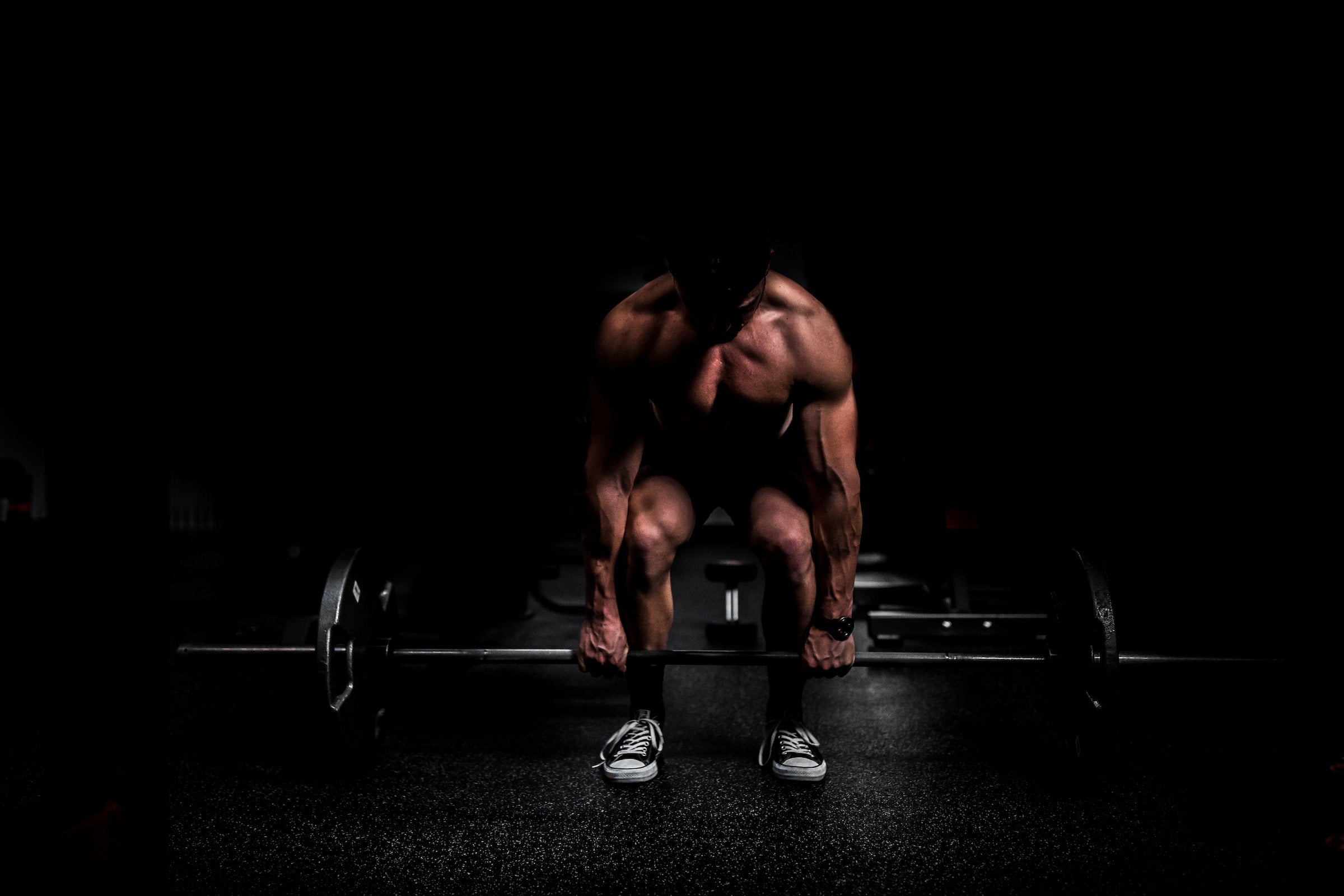So, the next time you hit the gym, consider taking creatine to give your muscles the extra boost they need to push through those high-intensity exercises and understand how long does creatine take to work.
Benefits of Creatine Supplements
Creatine offers a wide range of benefits, including:
- Enhanced exercise performance
- Increased strength, power, and endurance during high-intensity exercise
- Stimulated muscle growth
- Optimized cognitive function
And we offer a creatine supplement that gives you all of this without any artificial dyes, flavors, or sweeteners.
The creatine loading phase can impact the effectiveness of creatine supplementation by rapidly saturating muscle cells with creatine, leading to expedited outcomes.
Research indicates that taking creatine supplements may help to lower blood sugar levels. Additionally, it could be a potential treatment for nonalcoholic fatty liver disease.
With such a diverse array of health benefits, it’s no wonder that creatine has become a popular supplement among athletes and fitness enthusiasts alike.
Muscle Mass Growth
Supplementing with creatine can lead to increased muscle mass by promoting muscle fiber growth and enhancing strength and power during workouts.
Creatine supplements were found to enhance muscle growth in a study. Comparing participants who took creatine against those who didn’t showed that the former had greater muscle gains.
Creatine is known for its ability to:
- Increase muscle mass
- Reduce inflammation
- Lessen muscle soreness after a workout
- Provide a 5-15% boost in power, strength, and work performed during sprints
Research has found that creatine supplementation can provide these benefits and it only needs to be short-term.
This makes creatine an invaluable asset for those looking to maximize their muscle mass and strength gains.
Cognitive Function Improvement
Aside from its muscle-building benefits, creatine has also been shown to improve cognitive function, short-term memory, and reasoning.
This makes it a valuable supplement not only for athletes looking to optimize their physical performance, but also for individuals seeking to enhance their cognitive abilities and protect their brain health.
Studies have even suggested that creatine may provide protective effects on the brain, including a decreased risk of age-related cognitive decline.
Creatine Loading vs. Maintenance Dose
When it comes to creatine supplementation, there are two main approaches: the loading phase and the maintenance dose.
Both methods have their own timeline for results, with the loading phase generally yielding faster outcomes.
The loading phase involves taking higher doses of creatine for a short period, typically 5-7 days, to rapidly saturate muscle cells with creatine and expedite results.
On the other hand, the maintenance dose approach involves taking a consistent daily dose, which may take 2-4 weeks to show noticeable effects.
So, how long does creatine take to work depends on the chosen method, and one might wonder, how long does it take for each method to yield results?
Ultimately, the choice between these two methods depends on individual preferences and goals.
Creatine Loading Phase
The creatine loading phase involves taking higher doses of creatine for 5-7 days, which can lead to more rapid muscle saturation and faster results.
During this phase, it is recommended to take 20 grams of creatine for the initial five to seven days, divided into four 5-gram servings throughout the day.
By employing the loading phase, individuals can expect to see results within just 5-7 days, making it an attractive option for those looking to quickly boost their athletic performance and muscle growth.
However, it is important to be aware of the possibility of initial weight gain during this process.
Maintenance Dose
The maintenance dose approach involves taking a lower, consistent daily dose of creatine to sustain adequate creatine levels in the body.
Following the loading phase, it is recommended to consume five grams per day or adhere to the study’s recommendation.
While the maintenance dose approach may take longer to show results, typically 2-4 weeks, it offers a more gradual and sustained increase in creatine levels, allowing individuals to maintain a healthy balance of creatine in their body over time.
Factors Affecting Creatine Response Time
Several factors can affect how quickly creatine works, including the type and quality of the supplement, dosage, and individual differences.
For optimal results, it is crucial to use a high-quality creatine supplement that is free of fillers and additives.
Dosage and individual factors, such as diet and workout intensity, can also play a significant role in how long it takes for creatine to show results.
A diet high in protein and carbohydrates can help optimize the effects of creatine, while vigorous exercise can expedite the process.
1. Supplement Type and Quality
The type and quality of creatine supplement play a significant role in its effectiveness. Some forms of creatine supplement include:
- Creatine monohydrate: the most extensively researched and recommended form of creatine supplement
- Creatine HCL: not as effective or well-absorbed as creatine monohydrate
- Creatine ethyl ester: not as effective or well-absorbed as creatine monohydrate
When selecting a creatine supplement, it is important to consider the form and brand, ensuring that multiple studies have been conducted to verify its safety and efficacy.
It is important to look out for any suspicious or dangerous ingredients written on the packet. One should be extra vigilant in this regard.
2. Dosage and Individual Differences
The amount of creatine taken is a factor in the time it takes for creatine to show results. Generally, higher doses of creatine will lead to quicker results.
Age, gender, and body type can also influence the efficacy of creatine.
A diet high in protein and carbohydrates can help optimize the effects of creatine, while engaging in high-intensity workouts can expedite the process.
By understanding these factors and tailoring your creatine supplementation accordingly, you can maximize its benefits and achieve your fitness goals more efficiently.
Best Practices for Taking Creatine
To maximize the benefits of creatine supplementation, it is essential to follow best practices.
Using high-quality supplements, engaging in high-intensity workouts, and maintaining consistency in dosage and timing are all crucial components of an effective creatine regimen.
Many people wonder how much creatine they should take for optimal results. It is suggested to take 0.1 gram of creatine per kilogram of bodyweight daily, ensuring that you are consuming the appropriate amount for your body size.
Consistent intake of a maintenance dose of 3-5 grams per day is also recommended for sustained results.
By adhering to these best practices, you can enjoy the full range of benefits that creatine supplementation has to offer.
Potential Side Effects and Safety Considerations
While creatine is generally considered safe when taken within recommended doses, potential side effects may include gastrointestinal issues, temporary weight gain, and bloating.
Before starting creatine supplementation, it is advised to consult a physician to determine if it is appropriate for you.
Discontinuing creatine use may result in a decrease in creatine levels, potentially leading to side effects including:
- fatigue
- muscle weakness
- weight loss
- a decrease in natural creatine production
Be sure to monitor your body’s response to creatine and consult a healthcare professional if you experience any adverse effects.
And if you’re looking for a natural, high-quality creatine supplement, we’ve got you covered.
Click here to try our proprietary blend.
Frequently Asked Questions
How do I know if creatine is working?
If you’re able to complete more than 12 reps of your regular workout routine, it’s a clear indication that your creatine is working.
How fast does creatine build muscle?
Creatine loading with 20-25g daily for 5-7 days followed by 3-5g per day can build muscle quickly, with results visible within 2-4 weeks of regular exercise.
This method of creatine loading is a great way to quickly build muscle mass and strength. It is important to note that regular exercise is necessary to see the full benefits of creatine loading. Additionally, it is important to follow the recommended dosage and duration of creatine loading to ensure the best results.
How long does it take for creatine to peak?
On average, creatine takes 2-4 weeks to reach peak effectiveness when supplemented at the recommended dose of 20-25 grams daily for the first 5-7 days. Maximum plasma concentration is usually achieved within 1 hour when a dose of 2 g is consumed.
How often do I take creatine to get bigger?
To get bigger, take a loading dose of 20-25 g per day for 5-7 days, followed by a maintenance dose of 3-5 g daily.
What are the benefits of creatine supplementation?
Creatine supplementation can improve physical performance and muscle growth, as well as providing cognitive benefits.
It has been shown to increase strength, power, and muscle mass, as well as improve cognitive function and reaction time. It can also help reduce fatigue and improve recovery time after an injury.





